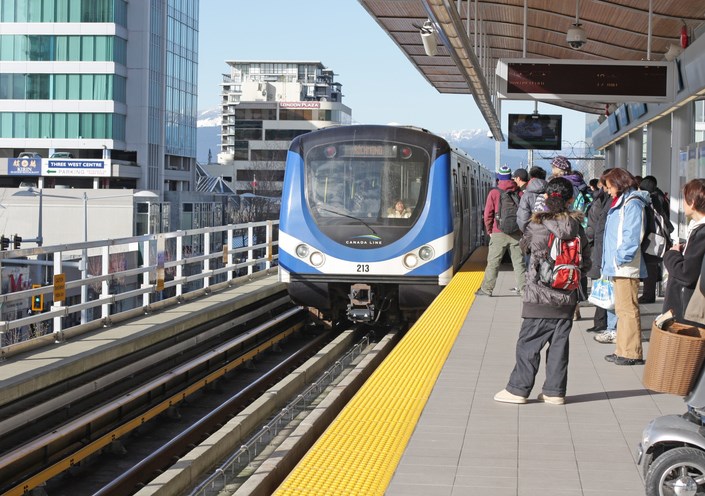As the official date for municipal elections in British Columbia draws near, discussions about housing have dominated most candidate meetings and debates across the Lower Mainland. But, depending on where you live and how you get to school or work, transportation may also be on your mind as you cast your ballot on October 20.
The entire Metro Â鶹´«Ă˝Ół»area is still recovering from the 2015 plebiscite on transportation and transit, a process that stemmed from an ill-fated campaign promise and placed enormous pressure on municipal leaders.
The possibility of a victory for the “Yes” side in the 2015 mail-in plebiscite was doomed due to the lack of a coherent message from municipalities, an extraordinarily efficient campaign from the “No” side that capitalized on the public’s distaste of TransLink and a hope for reform in the way transportation projects would be managed in the Lower Mainland. When all the ballots were tallied, 62 per cent of voters said “No” to adopting a new 0.5 per cent sales tax to fund improvements in transit infrastructure.
Many things have changed since then. For starters, Ottawa and Victoria have new governments that supplanted the ones led by Stephen Harper and Christy Clark in 2015. In just a few weeks, two of the biggest municipalities in the Metro Â鶹´«Ă˝Ół»area – Â鶹´«Ă˝Ół»and Surrey – will have new mayors and vastly different councils.
It must also be acknowledged that TransLink – the perennial whipping boy for everything that goes wrong in Metro Â鶹´«Ă˝Ół»â€“ has enjoyed its share of successes since the plebiscite. The introduction of the Compass Card was fairly smooth, with almost two-thirds of transit users saying they were satisfied with it in a survey I conducted in January 2016. Disruptions in service have subsided, and residents are starting to feel a bit better about operations and management.
Still, if we care to go back a few months, there was little to discuss about transportation in Metro Â鶹´«Ă˝Ół»during the last provincial election campaign. The spotlight, when it came to getting from Point A to Point B, was far away from public transit and focused primarily on bridges and tolls. The best example of this is the 24-hour span in April 2017, when the (then) governing BC Liberals promised a “freeze” on tolls, only for the (then) opposition BC New Democratic Party (NDP) to commit to “scrap” them.
In spite of everything that has transpired over the past few years, two transportation projects are expected in Metro Vancouver: the proposed Surrey–Newton–Guildford Light Rail Transit (LRT) project in Surrey and the extension of the SkyTrain Millennium Line underneath Broadway to Arbutus in Vancouver.
This month, Research Co. asked Metro Vancouverites about each of these projects, and the results outline a public that is eager for construction to start. Two-thirds of residents (68 per cent) are in favour of LRT in Surrey and four-in-five (82 per cent) agree with the extended SkyTrain in Vancouver.
When it comes to LRT, three-in-five Surrey residents (62 per cent) support the project, while 34 per cent do not. Transportation has been one of the main policy planks of the three main candidates who are seeking to replace Linda Hepner as mayor. A clear majority of residents believe the LRT project should continue as planned.
The level of support for the extended SkyTrain in Â鶹´«Ă˝Ół»reaches 81 per cent in the city itself, 81 per cent among Metro Vancouverites who commute in their cars, and 84 per cent among those who take transit to school or work.
Then there is the issue of whether to continue this line beyond Arbutus to the University of British Columbia (UBC) campus at Point Grey. The public is universally supportive of this idea, with 87 per cent of Metro Vancouverites – and 86 per cent of those who reside in the City of Â鶹´«Ă˝Ół»â€“ saying they would like to see this happen.
Taking SkyTrain to the UBC Point Grey campus is endorsed by practically equal proportions of Metro Vancouverites who commute driving (87 per cent), taking public transit (88 per cent) or biking and walking (89 per cent).
With just days to go before all voters cast their ballots, the prospect of the two transportation projects coming to fruition is immensely well liked. Taking one of them all the way to the UBC campus is even more popular. Candidates who do not want to see any of these ideas materialize will be in a tough spot when door-knocking on the final days of the campaign.
Mario Canseco is the president of Research Co.


